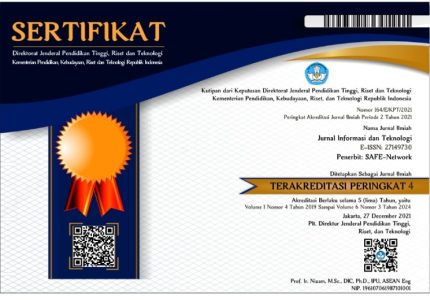Overview of Business Technology Integrators
Business technology integrators play a crucial role in helping organizations streamline operations and enhance efficiency through the seamless integration of various technological systems. These specialists combine hardware, software, and networking solutions to create cohesive and scalable platforms tailored to business needs. With expertise in a wide range of technologies, they facilitate the implementation of innovative tools that drive growth and competitiveness in today’s digital landscape.
Definition and Role
Business Technology Integrators are specialized companies or professionals that focus on aligning and combining various technological systems within an organization to ensure seamless operation and improved efficiency. Their primary role is to design, implement, and manage integrated solutions that support business objectives while enhancing communication, data sharing, and workflow processes.
Importance in Modern Business Ecosystems
Business technology integrators play a crucial role in modern business ecosystems by connecting various technology systems and ensuring seamless communication between them. They facilitate the integration of hardware, software, and cloud services to create cohesive and efficient operations. As companies increasingly rely on digital solutions, the expertise of these integrators helps optimize processes, enhance data sharing, and improve overall productivity.
In today’s fast-paced digital landscape, the importance of business technology integrators cannot be overstated. They enable organizations to adapt quickly to technological advancements, reduce operational costs, and maintain competitive advantages. By providing customized integration solutions, they support business innovation and agility, allowing companies to meet evolving customer expectations and industry standards. Ultimately, business technology integrators are vital for building resilient and scalable infrastructure within modern business ecosystems.
Core Services Offered by Business Technology Integrators
Business Technology Integrators play a vital role in transforming organizations by providing comprehensive core services that streamline operations, enhance efficiency, and support growth. Their expertise encompasses a wide range of solutions tailored to meet the unique needs of each business, ensuring seamless integration of technology systems. From strategic planning to implementation and ongoing support, these integrators are essential partners in driving technological innovation and success.
System Integration and Deployment
Business Technology Integrators specialize in providing core services related to system integration and deployment to ensure seamless operation of technological solutions within organizations. They focus on designing, implementing, and managing complex technology systems that align with business goals, enhancing efficiency and productivity. Their core services include assessing client needs, integrating diverse hardware and software components, configuring network infrastructure, and deploying enterprise solutions. These integrators also offer ongoing support and maintenance to ensure systems operate optimally, allowing businesses to leverage advanced technologies effectively and achieve a competitive edge in their industry.
Cloud Solutions and Infrastructure
Business Technology Integrators specializing in Cloud Solutions and Infrastructure provide essential core services that enable organizations to optimize their IT environment. These services include cloud migration, infrastructure design and deployment, network management, and data security. They tailor cloud architectures to meet specific business needs, ensuring scalability and efficiency. Additionally, they offer ongoing support and maintenance to ensure seamless operation and continuous improvement. By integrating various technology components, these integrators help businesses achieve better agility, reduce operational costs, and enhance overall performance in a competitive digital landscape.
Security and Data Privacy
Business Technology Integrators provide a comprehensive range of core services aimed at optimizing organizational technology infrastructure. Their offerings include network design and implementation, cloud solutions, and hardware and software integration to ensure seamless operational workflows. Additionally, they deliver ongoing technical support and maintenance to sustain system reliability and performance.
In the realm of security, these integrators implement robust cybersecurity measures, including firewall setup, intrusion detection systems, and endpoint protection, to defend against cyber threats. They also conduct regular security assessments and audits to identify vulnerabilities and ensure compliance with industry standards and regulations.
Data privacy is a critical component of their services, encompassing data encryption, access controls, and privacy policy development. Business Technology Integrators help organizations establish secure data management practices, ensuring sensitive information is protected and maintained in accordance with legal and regulatory requirements.
Network Management and Optimization
Business Technology Integrators provide essential core services focused on network management and optimization to ensure seamless and efficient operations for organizations. Their primary role involves designing, implementing, and maintaining robust network infrastructures that support business growth and dynamic demands. These services include monitoring network performance, troubleshooting issues promptly, and implementing security measures to safeguard data and resources. Additionally, they optimize network performance through capacity planning, traffic analysis, and the deployment of advanced technologies to enhance speed, reliability, and scalability. By continuously managing and refining network environments, Business Technology Integrators enable businesses to operate efficiently while minimizing downtime and maximizing productivity.
Custom Software Development
Business technology integrators specializing in custom software development provide comprehensive core services designed to optimize business operations. These services include tailored software solutions that align with specific business needs, enabling organizations to enhance efficiency and productivity. They also offer system integration to ensure seamless connectivity between various applications and platforms, facilitating smooth data flow and collaboration. Additionally, these integrators provide consulting and strategic planning to help businesses identify suitable technological innovations and implement them effectively. Maintenance and ongoing support are also key services, ensuring that software remains up-to-date, secure, and fully functional to support evolving business demands.
Key Technologies Utilized
Business technology integrators play a crucial role in enhancing organizational efficiency by leveraging key technological solutions. They utilize a range of advanced tools and systems to streamline operations, improve communication, and ensure seamless integration of various digital platforms. By harnessing these technologies, businesses can achieve greater agility, security, and competitive advantage in today’s rapidly evolving digital landscape.
Internet of Things (IoT)
Key Technologies Utilized by business technology integrators include a wide range of innovative solutions, with the Internet of Things (IoT) playing a central role. IoT enables seamless connectivity between devices, sensors, and systems, allowing businesses to collect real-time data and improve operational efficiency. Through IoT, companies can monitor equipment health, automate processes, and optimize resource usage, leading to enhanced productivity and cost savings. Integration of IoT solutions requires advanced hardware, secure networks, and sophisticated data analytics platforms, which business technology integrators provide to deliver customized and scalable solutions for various industries.
Artificial Intelligence and Machine Learning
Key technologies utilized by business technology integrators include artificial intelligence and machine learning, which are transforming the way organizations operate and compete. These advanced technologies enable automation of complex processes, enhancing efficiency and accuracy across various functions. AI and ML facilitate data-driven decision making by analyzing vast amounts of information to uncover patterns and insights that were previously inaccessible. Business technology integrators leverage these tools to develop intelligent systems, predictive analytics, and personalized solutions that meet specific client needs. Incorporating AI and machine learning into enterprise infrastructure helps streamline workflows, improve customer experiences, and foster innovation, making them indispensable components of modern business technology integration.
Big Data and Analytics
Business technology integrators leverage a variety of key technologies to harness the power of big data and analytics, enabling organizations to make informed decisions and optimize operations.
- Data Warehousing: Centralized repositories that store large volumes of structured and unstructured data for easy access and analysis.
- Data Mining: Techniques used to discover patterns, trends, and relationships within large datasets.
- Machine Learning and AI: Advanced algorithms that enable predictive analytics, automation, and intelligent insights from data.
- Cloud Computing: Scalable infrastructure that supports big data storage, processing, and analytics services.
- Business Intelligence Platforms: Tools like dashboards and reporting systems that visualize data and facilitate strategic decision-making.
- Streaming Data Technologies: Real-time data processing platforms such as Kafka or Spark Streaming, allowing instantaneous analysis of data as it is generated.
- Data Integration Tools: Solutions that consolidate data from diverse sources, ensuring data quality and consistency for analytics.
Automation Tools
Business technology integrators leverage a variety of key technologies and automation tools to streamline operations and enhance efficiency. They utilize cloud computing platforms to enable scalable and flexible infrastructure, supporting seamless data sharing and collaboration. Integration platforms like Enterprise Service Buses (ESBs) facilitate the connection of disparate systems, ensuring smooth data flow. Automation tools such as Robotic Process Automation (RPA) are employed to reduce manual tasks and increase accuracy. Additionally, Business Process Management (BPM) software helps in designing, executing, and monitoring workflows. Data analytics and artificial intelligence (AI) tools are also integrated to provide actionable insights and support decision-making. Overall, these technologies and tools enable business technology integrators to create unified, automated, and intelligent systems that drive business innovation and growth.
Benefits of Partnering with Business Technology Integrators
Partnering with business technology integrators offers numerous advantages for organizations seeking to enhance their operations. These experts provide tailored solutions that streamline processes, improve efficiency, and ensure seamless technology deployment. By collaborating with specialists in this field, businesses can stay ahead of industry trends, reduce operational risks, and achieve scalable growth with confidence.
Enhanced Efficiency and Productivity
Partnering with Business Technology Integrators significantly enhances efficiency and productivity within organizations by streamlining processes and optimizing technology usage. These experts assess a company’s existing infrastructure, identify areas for improvement, and implement tailored solutions that automate tasks and reduce manual effort. As a result, employees can focus on more strategic activities, leading to faster decision-making and increased output. Additionally, technology integrators ensure systems work seamlessly together, minimizing downtime and technical issues that can hinder productivity. This collaborative approach fosters a more agile and responsive business environment, positioning companies for sustained growth and success.
Cost Savings and ROI
Partnering with Business Technology Integrators can significantly enhance your company’s efficiency and competitive edge, leading to substantial cost savings and improved return on investment. These experts assess your current technological infrastructure and develop customized solutions that optimize operations, reduce redundant processes, and minimize unnecessary expenses.
By leveraging their specialized knowledge, organizations can avoid costly mistakes during technology deployment and ensure seamless integration of new systems. This proactive approach not only lowers implementation costs but also shortens downtime, allowing your business to maintain productivity and capitalize on new opportunities quickly.
Furthermore, Business Technology Integrators help maximize ROI by aligning technology investments with your business goals. They enable you to adopt scalable solutions that grow with your company, ensuring long-term value and performance improvements. The strategic partnerships with these integrators foster innovation while maintaining cost-conscious practices, ultimately offering a smarter, more efficient path to technological advancement.
Scalability and Flexibility
Partnering with Business Technology Integrators offers significant advantages in scalability and flexibility, enabling businesses to adapt quickly to changing market demands. These integrators provide tailored solutions that can expand or contract as needed, supporting growth without requiring extensive infrastructure changes. Their expertise allows organizations to implement scalable technologies seamlessly, ensuring that systems remain efficient and robust as business needs evolve. Additionally, Business Technology Integrators promote flexibility by integrating a range of technologies and platforms, allowing companies to customize their IT environment for optimal performance and innovation. This strategic partnership ultimately empowers businesses to stay competitive and agile in a dynamic digital landscape.
Improved Security Posture
Partnering with Business Technology Integrators enhances your organization’s security posture by providing expert guidance and advanced security solutions tailored to your specific needs. These professionals assess vulnerabilities, implement robust security measures, and ensure compliance with industry standards, reducing the risk of cyber threats. Additionally, they offer ongoing monitoring and support, enabling your business to proactively identify and address potential security issues before they escalate. This strategic partnership not only strengthens your defenses but also boosts overall confidence in your technological infrastructure, allowing you to focus on core business objectives.
Challenges Faced by Business Technology Integrators
Business technology integrators play a crucial role in harmonizing various digital systems to ensure seamless operations and competitive advantage. However, they encounter numerous challenges including rapidly evolving technology landscapes, complexity of integration processes, and the need for specialized skills. Navigating cybersecurity threats, managing diverse stakeholder expectations, and maintaining cost-efficiency further complicate their tasks. Addressing these challenges is essential for successful digital transformation and long-term business growth.
Rapid Technological Changes
Business technology integrators face numerous challenges in the rapidly evolving technological landscape. Keeping up with continuous advancements requires constant learning and adaptation to new tools and systems. Integrators must ensure seamless integration of diverse technologies, which can be complex and time-consuming, often leading to compatibility issues. Additionally, they need to manage cybersecurity risks associated with adopting new technologies, safeguarding sensitive data from potential threats. Budget constraints and resource limitations also pose significant hurdles, impacting the ability to implement and maintain cutting-edge solutions effectively. Furthermore, the fast pace of technological change can lead to short product life cycles, necessitating frequent upgrades and ongoing support, which adds to operational pressures. Staying ahead in such a dynamic environment demands agility, strategic planning, and a deep understanding of emerging trends to deliver sustainable solutions for businesses.
Data Security and Compliance
Business technology integrators play a crucial role in enabling seamless technology adoption and operational efficiency. However, they face significant challenges such as rapidly evolving technology landscapes, which require continuous updates and expertise. Data security is another critical concern, as integrators must protect sensitive client information from cyber threats and unauthorized access. Compliance with diverse regulations, such as GDPR or HIPAA, adds complexity to their operations, demanding strict adherence to legal standards. Additionally, integrating new systems with legacy infrastructure often involves technical hurdles, resource constraints, and managing stakeholder expectations. Balancing innovation with security and compliance is essential for successful technology integration in today’s dynamic business environment.
Integration Complexities
Business technology integrators often encounter numerous challenges when aggregating diverse systems and solutions to create seamless operational environments. Integration complexities arise from the vast array of legacy systems, disparate data formats, and varying standards across different platforms, making cohesive communication difficult. Additionally, ensuring data security and maintaining data integrity during integration processes pose significant hurdles, especially when dealing with sensitive information. Rapid technological advancements require integrators to continually update their skills and tools, which can be resource-intensive. Compatibility issues between new and existing systems further complicate integration efforts, often leading to delays and increased costs. Moreover, aligning different stakeholders’ expectations and managing cross-departmental collaboration adds another layer of challenge, emphasizing the importance of effective communication and strategic planning in successful integration projects.
Managing Client Expectations
Business technology integrators often face significant challenges in managing client expectations, which can impact the success of technology implementation projects. One major challenge is aligning the client’s vision with practical technological solutions, as clients may have idealized ideas that do not match current capabilities or budgets. Additionally, communication barriers can lead to misunderstandings about project scope, timelines, and deliverables, causing frustration on both sides. Integrators must also navigate evolving technology landscapes, ensuring that clients stay informed about the latest developments while setting realistic expectations. Managing change resistance from clients or staff who are accustomed to existing systems can further complicate integration efforts. Ultimately, fostering transparent communication and setting clear, achievable goals are essential for overcoming these challenges and ensuring successful technology integration.
Selecting the Right Business Technology Integrator
Choosing the right business technology integrator is crucial for organizations seeking seamless integration of various technological systems. A skilled integrator can enhance operational efficiency, improve communication, and support overall business growth. Understanding the key factors to consider ensures that your business partners with a provider capable of delivering tailored, innovative solutions that align with your strategic goals.
Assessing Expertise and Experience
Choosing the right business technology integrator is crucial for ensuring the seamless implementation and management of your organization’s technology solutions. Evaluating their expertise and experience helps determine if they can effectively meet your business needs and adapt to evolving technology landscapes.
- Assess the integrator’s industry-specific experience to ensure familiarity with your sector’s unique requirements.
- Review their portfolio of successful projects to gauge their capability and versatility.
- Verify certifications and partnerships with leading technology providers as indicators of their technical proficiency.
- Ask for client references and case studies to assess reliability and quality of service.
- Evaluate their team’s expertise through qualifications and ongoing training programs.
- Determine their ability to provide end-to-end solutions, from planning to support and maintenance.
- Consider their approach to project management and customer support to ensure smooth collaboration.
Evaluating Technological Capabilities
Choosing the right business technology integrator is crucial for ensuring seamless implementation and optimal performance of technological solutions within your organization. It involves assessing their ability to understand your business needs, their technical expertise, and their track record of successful integrations. Evaluating these capabilities helps in selecting a partner who can effectively bridge the gap between your existing systems and innovative technologies, ultimately driving operational efficiency and competitive advantage.
Understanding Pricing and Contracts
Selecting the right business technology integrator is essential for ensuring seamless implementation and optimal performance of your technological systems. A knowledgeable integrator understands your business needs and can align technology solutions accordingly, providing continuity and efficiency across operations. When evaluating potential partners, consider their experience, reputation, and the range of services offered to determine if they meet your specific requirements.
Understanding pricing and contracts is equally important in the selection process. Clearly detailed quotes should specify all costs involved, including hardware, software, labor, and ongoing support. Be wary of hidden fees or vague language that could lead to unexpected expenses later. Additionally, review contract terms carefully, paying attention to service level agreements, warranties, and renewal policies. Ensuring transparency and clarity in pricing and contractual obligations helps establish a strong, trustworthy partnership and prevents future misunderstandings.
Client Support and Maintenance Services
Choosing the right business technology integrator is essential for ensuring seamless implementation, optimal performance, and long-term success of your technological infrastructure. A reliable integrator not only provides initial setup but also offers ongoing support and maintenance services that keep your business running smoothly.
- Expertise and Experience: Ensure the integrator has a proven track record in your industry and specializes in the technologies your business uses.
- Customized Solutions: Look for providers who tailor their services to meet your specific business needs rather than offering one-size-fits-all packages.
- Client Support: Choose a partner committed to prompt and effective support, including troubleshooting, user training, and regular updates.
- Maintenance Services: Confirm they offer ongoing maintenance plans to manage system updates, security patches, and performance optimization.
- Scalability: Select a technology integrator capable of scaling solutions as your business grows, avoiding future costly replacements.
- Reputation and References: Check reviews and ask for references to validate their reliability and quality of service.
- Cost Transparency: Ensure clear pricing structures with no hidden fees to manage your budget effectively.
Future Trends in Business Technology Integration

As businesses continue to evolve in an increasingly digital world, the role of business technology integrators has become crucial in shaping future trends. These professionals are at the forefront of implementing innovative solutions that seamlessly blend various technologies to enhance efficiency, productivity, and competitive advantage. With advancements such as artificial intelligence, cloud computing, and Internet of Things (IoT), the landscape of business technology integration is rapidly transforming, offering new opportunities and challenges for organizations worldwide.
Edge Computing
Future trends in business technology integration are increasingly focusing on the expansion and refinement of edge computing capabilities. Edge computing enables data processing closer to the source, reducing latency and bandwidth usage, which is essential for real-time decision-making and IoT applications. As businesses seek faster and more efficient operations, integrating edge solutions with existing infrastructure will become a priority for technology integrators. Additionally, advancements in AI and machine learning will be embedded at the edge, allowing for smarter, autonomous systems that improve productivity and customer experiences. The convergence of 5G networks with edge computing will further enhance connectivity, supporting the growth of remote work, smart environments, and industrial automation. Overall, business technology integrators will play a crucial role in deploying these technologies, ensuring seamless integration, security, and scalability for future-proof infrastructures.
AI-Driven Business Processes
Future trends in business technology integration indicate a rapid advancement towards more intelligent and seamless AI-driven processes. As businesses continue to adopt emerging technologies, AI will play a pivotal role in automating complex workflows, enhancing decision-making, and providing personalized customer experiences. Integration platforms will become more sophisticated, enabling real-time data sharing across diverse systems and enabling companies to respond swiftly to market changes. Additionally, the rise of edge computing and Internet of Things (IoT) will contribute to more decentralized and efficient operations. Business technology integrators will need to focus on developing scalable, secure, and adaptable solutions that leverage AI to optimize operational efficiency and innovation in an increasingly interconnected digital landscape.
Unified Communications and Collaboration
Future trends in business technology integration are shaping the way organizations operate, emphasizing seamless connectivity and enhanced efficiency. As technology continues to evolve, businesses are increasingly adopting unified communications and collaboration tools that facilitate real-time interaction across borders and devices. Artificial intelligence and machine learning are expected to play a crucial role in automating workflows, providing intelligent insights, and personalizing user experiences. Cloud-based platforms will further enhance flexibility, scalability, and remote accessibility, enabling companies to innovate rapidly. Additionally, the integration of Internet of Things (IoT) devices will create smarter workplaces and operational environments, fostering improved data collection and decision-making. Overall, business technology integrators will need to focus on creating cohesive, secure, and adaptable systems to meet the growing demands of digital transformation.
Omni-Channel Technology Integration
Future trends in business technology integration, particularly in omni-channel technology, are transforming how companies connect with their customers and manage operations. As businesses move towards seamless, unified experiences, technology integrators play a vital role in implementing and optimizing these systems to ensure efficiency, personalization, and data-driven decision making.
- Increased Adoption of AI and Machine Learning: Business technology integrators will focus on embedding AI into omni-channel platforms to deliver personalized customer interactions and automate complex processes.
- Unified Customer Data Platforms: Integrators will develop comprehensive data solutions that consolidate information across channels, enabling more targeted marketing and improved customer service.
- Real-Time Analytics and Insights: The integration of real-time data streams will allow businesses to respond instantly to customer behaviors and market changes, enhancing agility.
- Expansion of Mobile and IoT Integration: Technology will extend to mobile devices and IoT sensors, creating more interconnected channels and enriching customer touchpoints.
- Focus on Cybersecurity and Data Privacy: As data flows increase across channels, integrators will prioritize secure solutions that comply with privacy regulations, ensuring trust and compliance.
- Implementation of Modular and Scalable Solutions: Future integrations will favor flexible, scalable architectures that allow businesses to adapt quickly to evolving technological and market demands.
- Enhanced Customer Experience through Omnichannel AI Assistants: Chatbots and virtual assistants will become more sophisticated, providing consistent support across all customer touchpoints.





